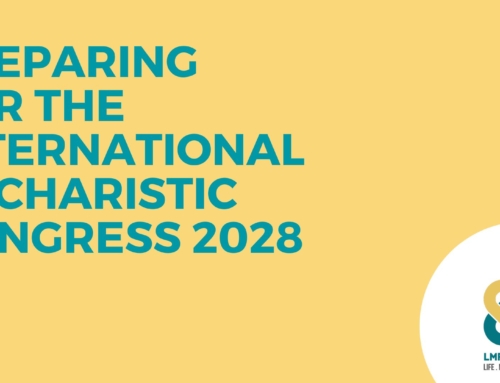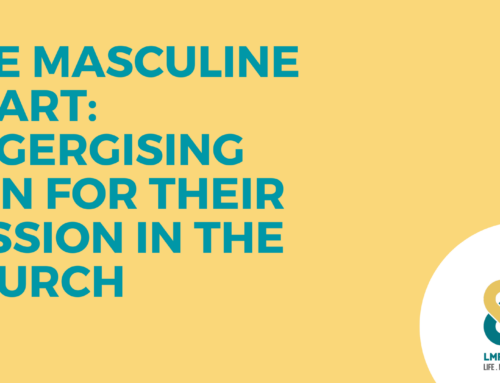We recently took an inquiry from a man about prenuptial agreements. He wanted to know if they were okay in the Catholic Church.
With divorce becoming more common, a lot of engaged couples are asking the question: “what if we don’t make it?” The concern is not always related to securing financial assets among those marrying from different states of wealth. Sometimes a spouse entering a second marriage wants to protect the inheritance of their children from the first marriage and a prenuptial agreement may be equally relevant to items of sentimental value as those of monetary worth.
Whatever the reasons, a prenuptial agreement is generally considered to be inconsistent with a Catholic understanding of marriage, though they are not expressly prohibited. Here’s what The Australian Catholic Marriage & Family Council (‘Getting Married in the Catholic Church: FAQs’) says on the issue:
Question 33. WE WANT OUR MARRIAGE TO LAST FOREVER BUT WE ARE SIGNING A LEGAL AGREEMENT CONCERNING OUR PROPERTY JUST IN CASE IT DOESN’T. IS THIS OK?
Marriage is a covenant relationship based on an enduring committed love: a partnership for the whole of life. Whole of life is understood in two ways. Firstly, it is a lifelong partnership, “as long as we both shall live”, as expressed in the wedding ceremony. Secondly, it presupposes a comprehensive sharing of both spiritual and temporal goods.
A pre-nuptial agreement, as commonly understood, is an agreement made prior to marriage on settlement terms for the division of property in the event of a divorce. Such a prenuptial agreement waters down the life-long commitment of covenant love. (ACMFC, Getting Married in the Catholic Church, FAQs: here)
Fr Ken Doyle writes along similar lines in the Catholic Times:
Then, to the matter of the prenuptial agreement: The Catholic Church does not have a blanket prohibition of “prenups.” In certain cases, they can be quite valid and helpful.
When a widow marries a widower, for example, and they both have children from their previous marriages, a prenup is a legitimate way of determining what is common property and what is separate as a basis for determining the inheritance rights of each spouse’s children.
In most cases, though, prenups are a bad idea and may even call into question the validity of the marriage itself. … Clearly, the church’s teaching is that marriage is permanent and requires an unconditional commitment. Accordingly, Canon 1102 of the church’s Code of Canon Law says that “marriage subject to a condition about the future cannot be contracted validly.” For a prospective spouse to say, for example, “I will marry you, if you agree I’ll get half the assets at a divorce,” strikes at the heart of the church’s view of marriage.
The very contemplation of divorce at the outset of a marriage creates an “escape hatch” and could well imply something less than a total commitment. (Full article here)
In other words, prenups may be warranted in very specific circumstances, such as the case cited where there are pre-existing children with inheritance rights from their deceased parent. In such a case, the prenup applies irrespective of whether the couple later divorce as it is often about specifying what rightly belongs to the widowed spouse (and therefore able to be shared with the new spouse) and what belongs to the children but is perhaps held in trust.
For most couples, prenups are considered to contradict the essence of Catholic marriage as a total, permanent and unconditional commitment as they presuppose the dissolution of the marriage. As such, the presence of a prenup calls into question the validity of the marriage.
But are prenups are bad idea only because they contradict the teachings of the Church?
Turns out there is mounting research that prenups are not a good idea for ANY marriage, Catholic or otherwise. Brad Wilcox writes in the New York Times that if a prenup is being discussed, the couple is better off cohabiting. He goes on to cite…
[R]esearch suggests that couples who embrace a generous orientation toward their marriage, as well as those who take a dim view of divorce, are significantly more likely to be happy in their marriages. A National Center for Family and Marriage Research study finds that couples who share joint bank accounts are less likely to get divorced. In fact, married couples who do not pool their income are 145 percent more likely to end up in divorce court, compared to couples who share a bank account.
[Read the whole article “If you want a pre-nup, you don’t want a marriage”: here]
For most couples preparing for marriage in the Catholic church, the issue of prenups only occasionally comes up. When it does, couples need to be fully informed of the implications for the validity of their marriage in the eyes of the Church, as well as the very real impact that they have on the level of commitment by the spouses.




I’m an 88 year old widower, having been married 58 years. I’m engaged to a 65 year old divorced ;annulled Catholic lady. I have a substantial estate and IRA account which has, til now been designated to 4 adult children and 7 grand children My intended lady also has substantial wealth. Neither of us wish to comingle our wealth. I understand that in Florida, if a partner dies, he/she stands to take over 30% of the deceased’s estate plus drain $18000 per year for living expenses. No way this sits well with either party, but the Church opposes pre nup arrangements….are there exceptions to the church rule, as my lawyer says a pre nup is demanded in our situation
Jake – thanks for your question. It’s a really interesting and unusual situation, and I don’t think the answer is simple. We’re going to ask some of our colleagues to look at it and post their thoughts for you, but in the meantime, we suggest that you seek the advice of a canon lawyer in your diocese who would be familiar with the laws of your state. The bishop’s office should be able to refer you to one.
I do not know that the Church has made a ruling against pre-nuptial agreements but such agreements do seem to contradict the marriage vows “till death us do part” or “all the days of my life”.
This having been said, Jake’s reason for having a pre-nuptial agreement is not that he does not think his second marriage will last “till death” but his concern is about what will happen with his and his future wife’s wealth when one of them dies. This is a legitimate concern, especially in wanting to protect their children’s rights. It is also consistent with the Church’s teaching on marriage.
In Australia (where I am writing this) a clearly written will could cover any concerns about who the estate goes to.
The comment from Jake’s lawyer suggests this may not be sufficient. In this case, a pre-nuptial agreement to deal with what happens “when one of us dies ….” would be totally consistent with Church teaching that a marriage is “till death”.
I hope this helps and wish Jake and his intended lady every happiness.
My husband and I were married outside of the catholic church in 1999. He is catholic. I went through RCIA and became a catholic so we could remarry in the church and raise our children catholic together. I signed a prenuptial agreement, unwillingly, prior to the first time we married. When we got married in the catholic church a few years later, the prenup was never brought up and we married. We are now getting divorced. Could the prenup be invalidated bc we were married without a new prenup and was not a part of this marriage? Or could our marriage, in the church, become invalid!!???
L, we are so sorry to hear that you are divorcing. We hope and pray that reconciliation might still be possible and that your faith will provide you both with the grace and strength to follow the Lord during this difficult time. If it is at all possible to slow things down so that you both have time to think clearly about this drastic step, we would encourage you to do so. You might find some useful information here http://www.smartmarriages.com/before.breakup.html
With regards to your questions…
When a couple marries in the Catholic church, in most countries, the government authorises the priest to also act as a civil celebrant and the couple therefore enters both a civil union and religious union through the one ceremony. In your case, as you were already civilly married, your Catholic wedding would have been what is known as ‘convalidation’ – that is the conferring of the Sacrament only. A prenuptual agreement is a legal contract and only applies to the civil dimension of the marriage and so the prenup would presumably still apply. However, you would be wise to seek the advice of a lawyer.
In regards to your question about whether your Catholic marriage might be invalid. Nothing you have said suggests that your Catholic marriage would be invalid, but it is impossible for us to determine that – it can only be resolved by undertaking the annulment process through your local diocese. An annulment proceeding can not usually be initiated until the civil divorce is finalised.
I am marrying widower. We both have children and he is very wealthy and I am not. He has a trust for his grown children, and he wants a prenup to keep that in place. Is the catholic church alright with that?
Hi LJ,
The issue with pre-nups are the assumption that the marriage will not last till death, and therefore contradict the marriage vows. I am assuming that as your fiance is widowed, that he most likely is advanced in years and is thinking more about what happens after his death, not whether your marriage will end in divorce. Your fiance’s concerns are legitimate and his desire to protect his existing children’s inheritance is understandable. Usually, this can be managed via a will. We suggest that you consult with a canon lawyer (your diocese will be able to refer you to one), who can advise you on the best way to provide this security and preserve the integrity of your union.
There’s nothing wrong with what you’re suggesting.
There is no church rule against prenuptial agreements. The problem is that pre-nups are often abused. People use them to plan out divorces before they’re married. That’s not really a marriage.
There’s nothing wrong with singing prenuptial agreements that deal with what happens when you die.
Here’s a very good article about prenups by a canon lawyer: https://canonlawblog.wordpress.com/2014/02/18/a-catholic-look-at-pre-nuptial-agreements/
“For most couples, prenups are considered to contradict the essence of Catholic marriage as a total, permanent and unconditional commitment as they presuppose the dissolution of the marriage. As such, the presence of a prenup calls into question the validity of the marriage.
”
I remember taking canon law in 1991, and disagreeing with this perspective of what a prenup IS in essence. I have never really seen a prenup like this, nor does my friend, a divorce attorney who writes them. It is not “presupposing an end,” and may even forestall such an end depending on its terms; but it simply infers that I can never know another person or their intentions truly, and if THEY have no/little intention of staying on in a difficult marriage, I will not be left financially destitute because I was a poor judge of their character. A prenup is often signed because both parties believe a divorce will never happen anyway.
This question occurred to me as well. If your intent is to remain in the marriage, but the divorce laws in your jurisdiction put you at grave risk of injustice should your partner choose to betray the marriage contract, then prima facie it seems to me that a prenup would be prudent. Civil divorce is always a real possibility in any marriage because we cannot control the partner in the marriage or force them to remain faithful to it even if we personally are. So the question is: can we personally fully intend for the marriage to last until death while simultaneously hedging against the possibility of the other party divorcing us? IANAL, but it would seem that this is different than allowing an escape hatch for yourself should YOU want to divorce.
Your article contained the information I had been searching for online for a few days. It’s a wonderful and priceless piece of information. I appreciate you providing us this important information.